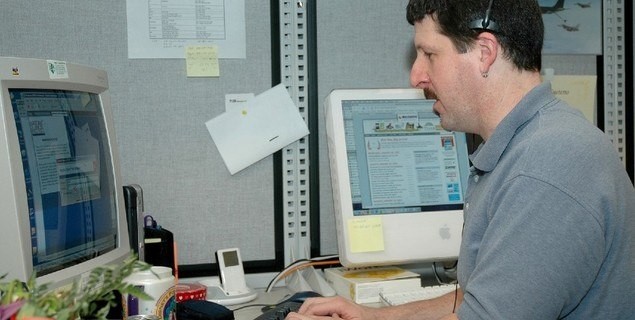Last week, I was invited to my children’s school to present at a careers fair. I had never been to a careers event, let alone presented, so had low expectations. As I sat on the panel in front of 200 tetchy parents and teenagers waiting to deliver my brief speil, I recalled my own underwhelming school career advice experience.
It consisted of meeting the careers advisor (who may or may not have also been the PE teacher), asking me some basic questions – the responses to which were inputted into a chunky, floppy disk computer programme. This was no ChatGPT. The ‘Final Score’ vidiprinter then chugged out some random career suggestions on triplicate paper. I seem to remember them including town planner and banker, but everyone seemed to get something mind-bogglingly obscure unless they knew what they wanted to do, which made the exercise worthless anyway. Considering I wanted to be a marine biologist at the time, not only did I not get any information on how to follow my dream, but all I received was a slip of pink paper and a bruised ego.
Fast forward 30 years and it was my great pleasure to join more than 70 parents with a diverse range of skills, backgrounds and careers to help inform children on career paths – in my case PR and marketing. Or perhaps put them off the career entirely, which is what may have happened in at least one conversation.
Here are the top four questions I was asked by 15-17 year olds across 20+ conversations:
- What is PR? My parents often ask me to explain what I do, so I have had lots of practice answering this question. However, considering my folks still do not not fully get it, clearly I needed to find other ways of describing what the profession is and does. I mistakenly used the phrase ‘sell-in’ early in the evening and this created lots of confusion so I had to choose my words more carefully. I was surprised that children had very little understanding of the sector, but then again why should they? I would have been the first person they met who worked in the industry unless they had watched Mad Men or Entourage, which they clearly had not as they were 16 years old. A brilliantly experienced FT journalist was on the other side of the room, so I referenced him in scenarios with the hope of joining the dots.
- How do I get into influencer marketing? There were a number of children, mostly girls, who wanted to work with influencers in some way. I can see why this is so popular as they will have been flooded with influencer output on their social channels for years. Even after I explained the huge amount of work that goes into influencer campaigns (by agencies and the influencers) there was huge enthusiasm for this career path.
- Will AI take your job? Granted, only one person asked this question, but it does highlight how the jobs of today may not exist in 10 years or even next year. ChatGPT can write a basic press release but I’d like to think PR is more creative than that. The jobs of the future will value the transferable skills of complex problem solving and creative thought, which are all required in PR, marketing and advertising, including understanding human behaviours to develop ideas and campaigns. The pace of change will mean that our children may have to or want to change careers as tech continues to shape our economic landscape.
- I don’t know what I want to do, my parents forced me to speak to you, why am I in school on a strike day; it’s so unfair? The most enjoyable conversations tended to start and end with ‘do what you love and the money will follow’. I explained my path into broadcast journalism through the BBC, Talksport, then into the constantly evolving work of PR and digital comms. I also explained that I was lazy at school, cruised through my GSCEs and played SimCity3000 and my chess computer for 16 hours a day instead of revising for my A Levels. I wasn’t encouraging doing sod all in school, as I would have received some direct feedback/been told off by the superb head of sixth form. Instead, I encouraged them to do some revision (mind blowing advice I know) and be creative outside of academia which will help them set themselves apart from their peers and make them a lot more interesting as a person and to potential employers.
It struck me that even though most of us don’t know what we want to do with our lives at 16, we continue to ask our children to make life decisions so early. But by putting on events of this kind, hopefully we will help young people consider professions that they previously never knew existed and perhaps even understand what PR is. If they do, please let my parents know.
